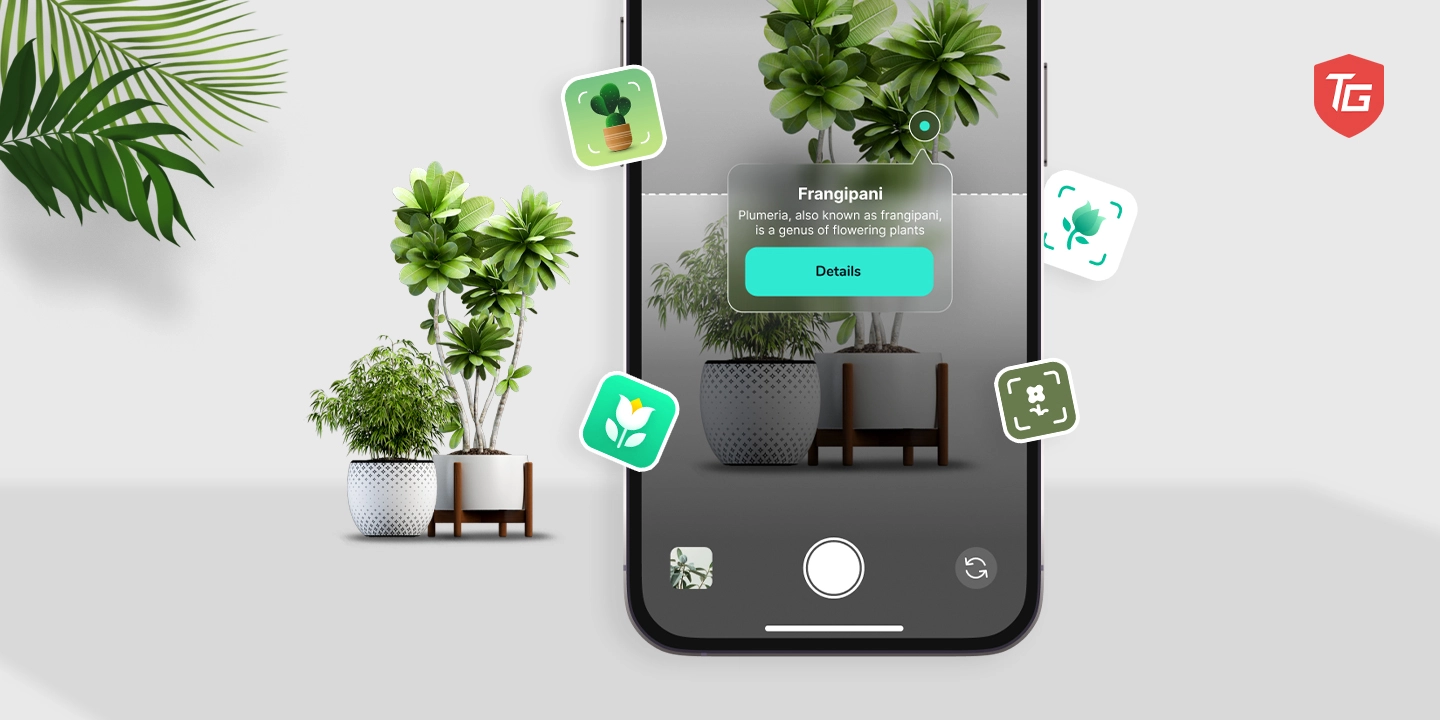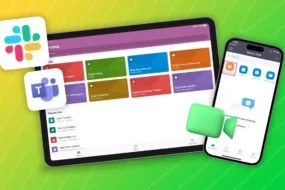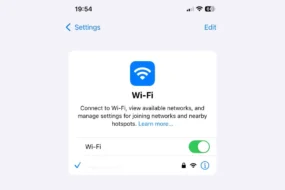Using a plant identifier for iPhone has become an invaluable tool for quickly identifying unknown plant species. For gardeners, students, and nature lovers alike, having an app for plant identification right in your pocket can be tremendously beneficial. But with so many options among plant ID apps free and paid, how do you determine the best plant apps for iPhone?
In this blog, we compare the best plant ID apps for iPhone and iOS although some of them also have paid versions for extra functions. We’ll look at key features like accuracy, database size, and extra resources to help you decide on the best free app to identify plants using your iPhone’s camera.
1. Google Lens
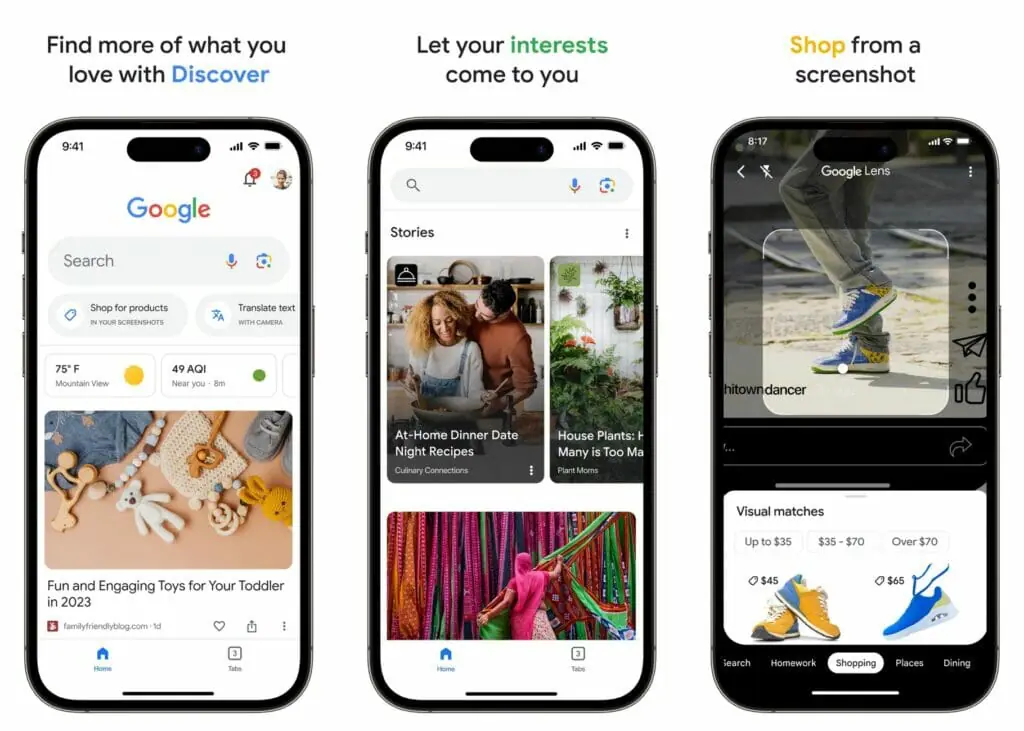
As Google’s computer vision app, Google Lens in google app offers free plant identification capabilities through your iPhone camera. While designed as a general visual identification tool, Google Lens can recognize thousands of common plant species, flowers, trees, succulents, and more using its deep database and AI.
To identify a plant, simply open the Google app & tap on the Google Lens icon and point your camera at the leaf, flower, or other distinguishing feature. You’ll get instant results naming the plant and providing basic details. As Google Lens isn’t exclusively designed for plants, it can have accuracy issues, especially with rare specimens. But for most common backyard, garden, house, and outdoor plants, it provides a quick free option for plant ID through your iPhone.
- Leverages Google’s advanced AI for identification
- Simple point-and-shoot interface
- Integrates with other Google apps
- Accuracy issues with rare or uncommon plants
- Provides limited plant care info
- Not customized specifically for plant ID
Price: Free
2. PictureThis
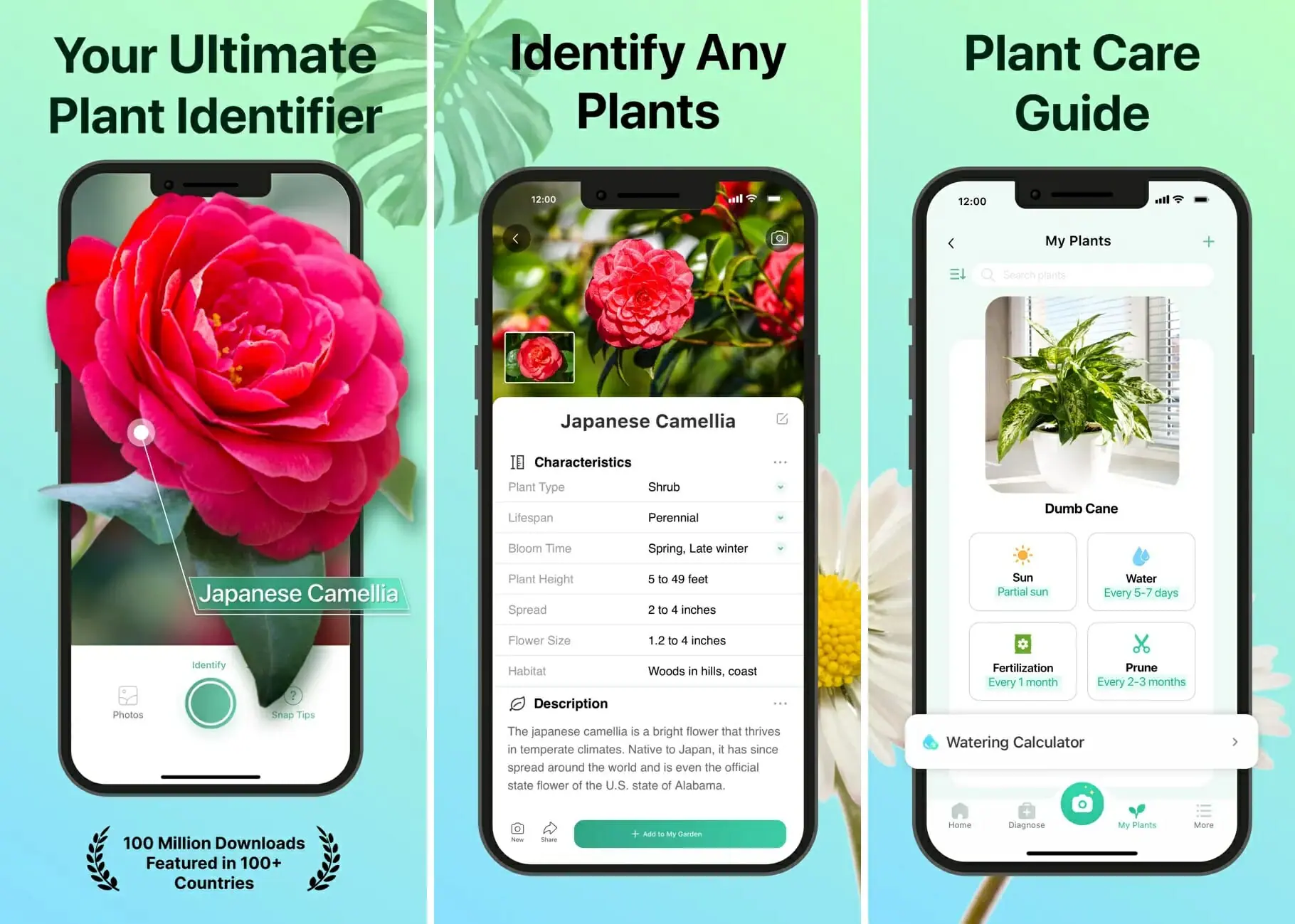
PictureThis is the most powerful and free plant identifier for iPhone currently available. With its unmatched artificial intelligence technology capable of recognizing over 1 million plant species, PictureThis is hands down the most robust and accurate free plant ID app for iPhone users. You simply take a photo of any plant, and PictureThis will identify it in seconds, down to the exact cultivar.
One of its best features is providing in depth care instructions and expert gardening tips for each identified plant, so you can learn exactly how to care for that species in your climate. It also has articles to diagnose plant diseases and pests. For flower gardeners, landscape designers, botanists, or anyone needing to identify plants frequently, PictureThis is the ultimate app, combining a vast plant database with invaluable plant care resources.
- Very accurate identifications using advanced AI technology
- Database of over 1 million plant species
- Provides detailed care instructions and gardening tips
- Can identify plant diseases and pests
- Simple interface for uploading photos
- Must pay for full access beyond limited free version
- Large database results in bigger app file size
- Works offline after initial install
Price: Free (In-app purchases start at $2.99)
3. PlantSnap
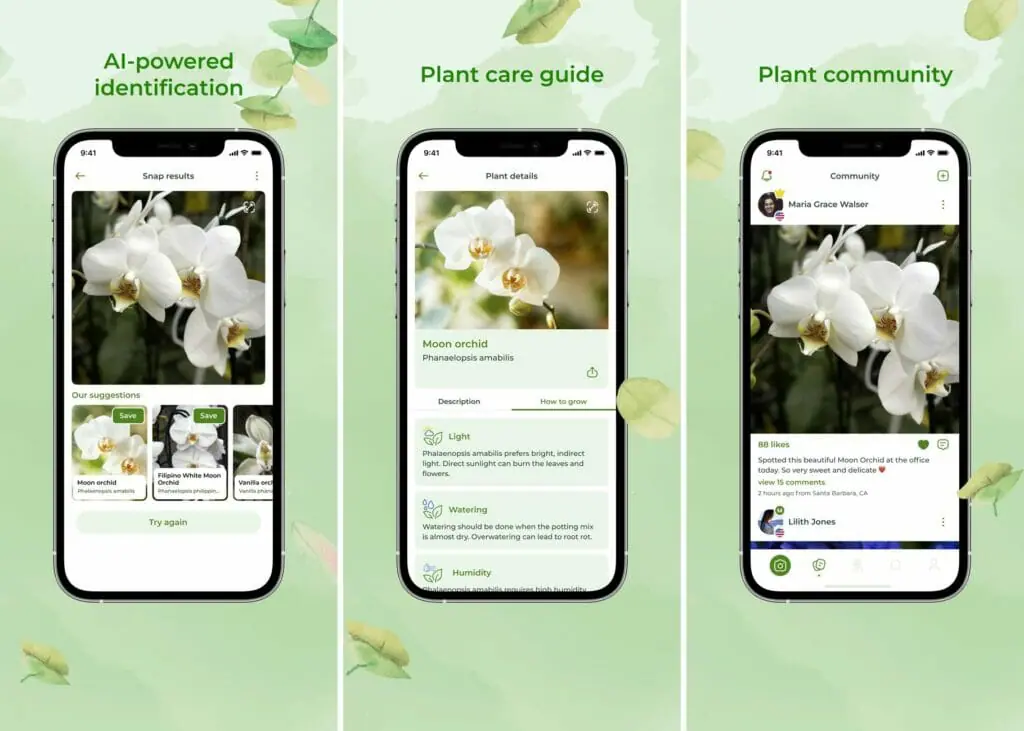
PlantSnap is another excellent free plant identifying app, with the capability to identify over 600,000 plants, which gives it unparalleled identification abilities. It uses advanced image recognition software and machine learning to analyze each photo submitted and provide a detailed list of potential matching plants. Users praise how its artificial intelligence gets smarter and more accurate over time.
PlantSnap also incorporates social features like crowdsourced identification assistance for unrecognized plants. Once a plant is identified, you can save it to your profile and add notes. As you build your plant life list, PlantSnap gives information on native ranges around the world and flowering times so you can plan your garden.
- Database of over 600,000 plants for reliable IDs
- Powerful image recognition and machine learning
- Crowdsourced assistance for unidentified plants
- Provides native species range information
- Social features like adding friends and building a life list
- Accuracy dependent on quality of user submitted photos
- Limited species information beyond basic ID
- Must be online to identify plants
Price: Free (In-app purchases start at $2.99)
4. Leafsnap
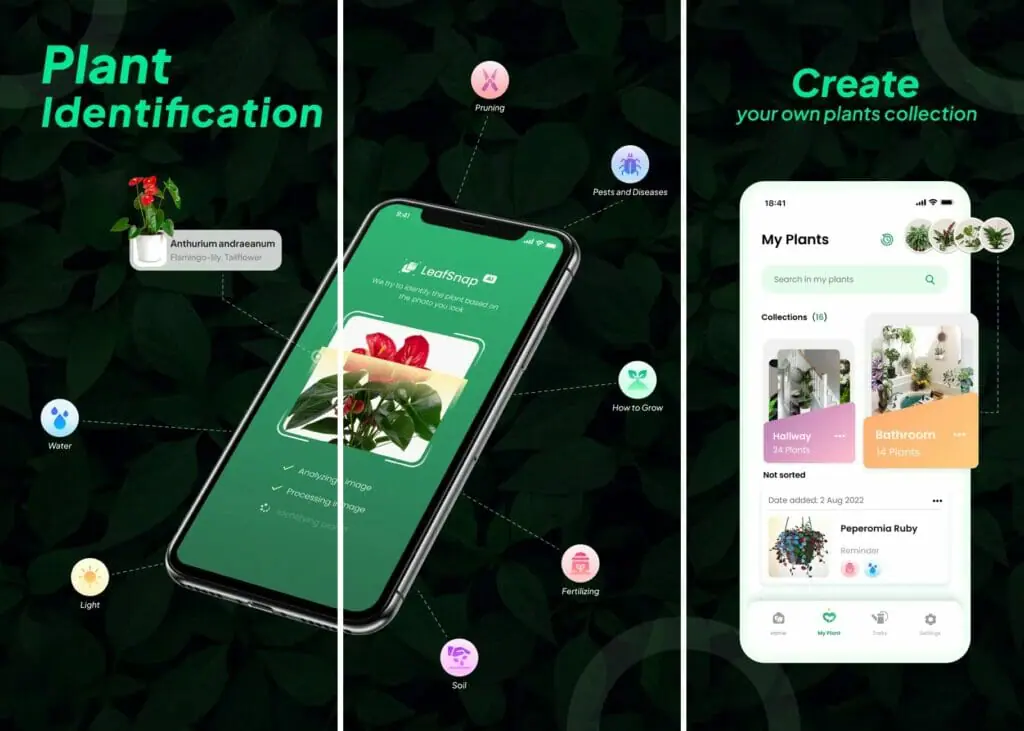
As a free plant ID app developed by scientists specifically for identifying tree species, Leafsnap stands out as a specialized, reliable tool for tree enthusiasts. Its database contains high resolution images of leaves, flowers, fruit, bark, and other characteristics to aid identification. Leafsnap presents users with comparison charts of similar looking species and details distinguishing features to confirm IDs.
One advantage is the mapping feature showing the native geographic range of each tree species. Designed with a clean, user friendly interface, Leafsnap is accessible for beginners but also provides value for experts through its technical descriptions. As a simple, efficient app dedicated solely to tree recognition and information, Leafsnap fills an important niche.
- Specialized focus on tree species
- High resolution images of leaves, bark, etc.
- Clean, user friendly interface
- Shows similar species for comparison
- Maps geographic native ranges of trees
- Lower accuracy for damaged/immature tree parts
- Limited number of species compared to other apps
- Does not include many non-tree plant species
Price: Free (In-app purchases start at $4.99)
5. PlantNet
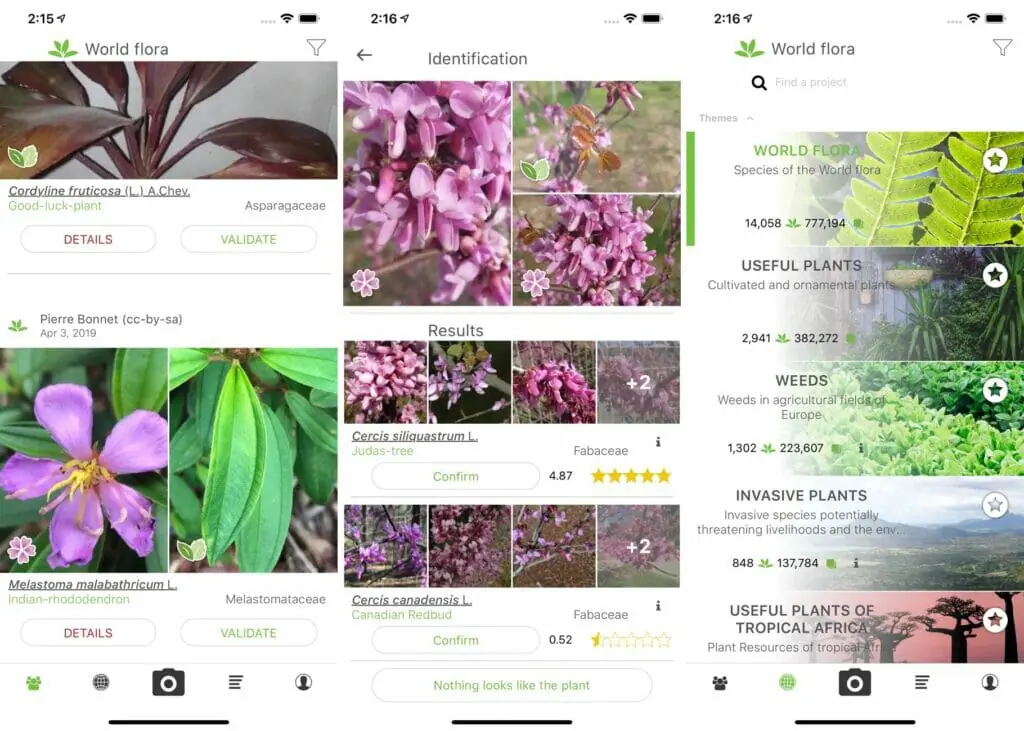
With its unique crowdsourcing model, Pl@ntNet has distinguished itself as a free plant identification app where users collectively build and expand its capabilities over time. Using machine learning technology, Pl@ntNet refines its plant recognition skills with each new photo submitted by users around the world. This collaborative approach means its database is always growing to encompass more obscure species.
Users especially like interacting with fellow community members to get assistance identifying unfamiliar plants. In addition to basic plant names and characteristics, Pl@ntNet provides value-added resources like distribution maps showing where species are invasive or native around the globe. For those who want to aid in creating the app while also identifying plants, Pl@ntNet’s community-centered platform offers special appeal.
- Crowdsourced database expands over time
- Machine learning improves accuracy
- Collaborative community assists with IDs
- Provides plant characteristics and distribution maps
- Accuracy dependent on user submitted photos
- Identifying obscure species can be difficult
- Limited supplemental info beyond ID
Price: Free
6. Garden Answers
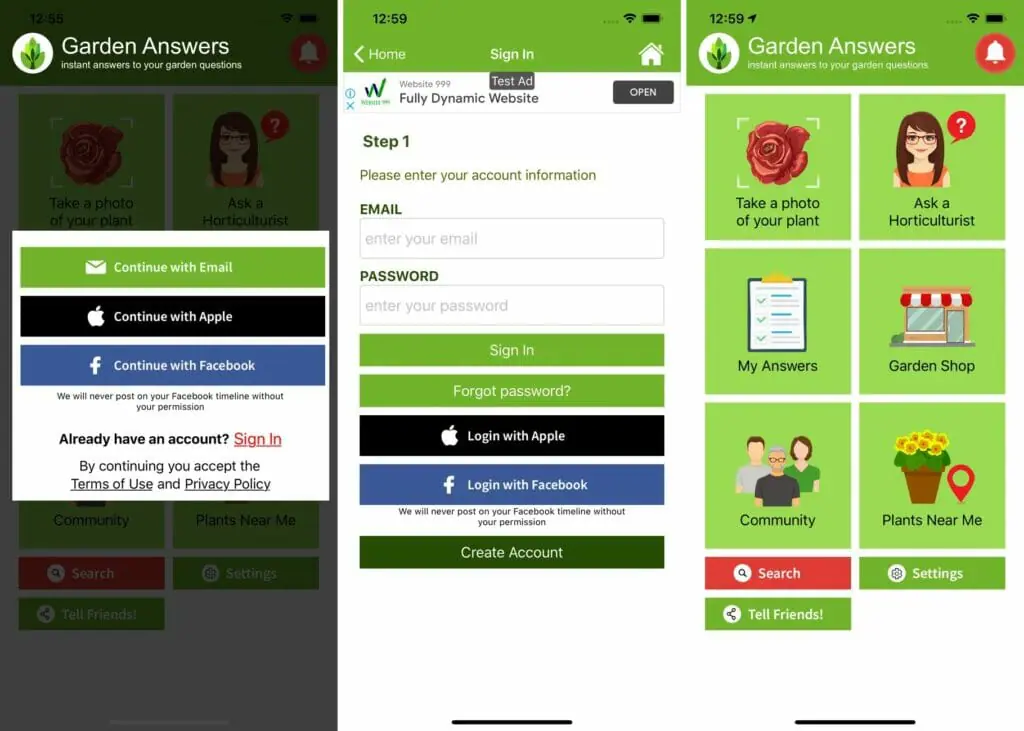
Created specifically for gardeners by Gardeners Supply Company, Garden Answers stands out for providing personalized plant care recommendations based on your location and gardening zone. After identifying a plant using its photo recognition software, Garden Answers generates customized care guides and tips for that specific species tailored to your climate.
Users love the “Ask the Gardener” feature to submit photos and get expert assistance identifying unknown plants. With over 20,000 plants in its database spanning flowers, trees, succulents, vegetables, and more, Garden Answers is a comprehensive ID app. It also includes guides on garden planning, pest control, pruning, and other topics so you can be a successful gardener.
- Provides personalized plant care recommendations
- Customizable care guides based on your location
- “Ask the Gardener” feature for expert ID assistance
- Database of over 20,000 plant species
- Includes gardening guides and care instructions
- Limited accuracy for less common plants
- Must pay for full access beyond 7-day free trial
- More focused on gardening advice than ID skills
Price: Free (In-app purchases start at $1.99)
7. FlowerChecker
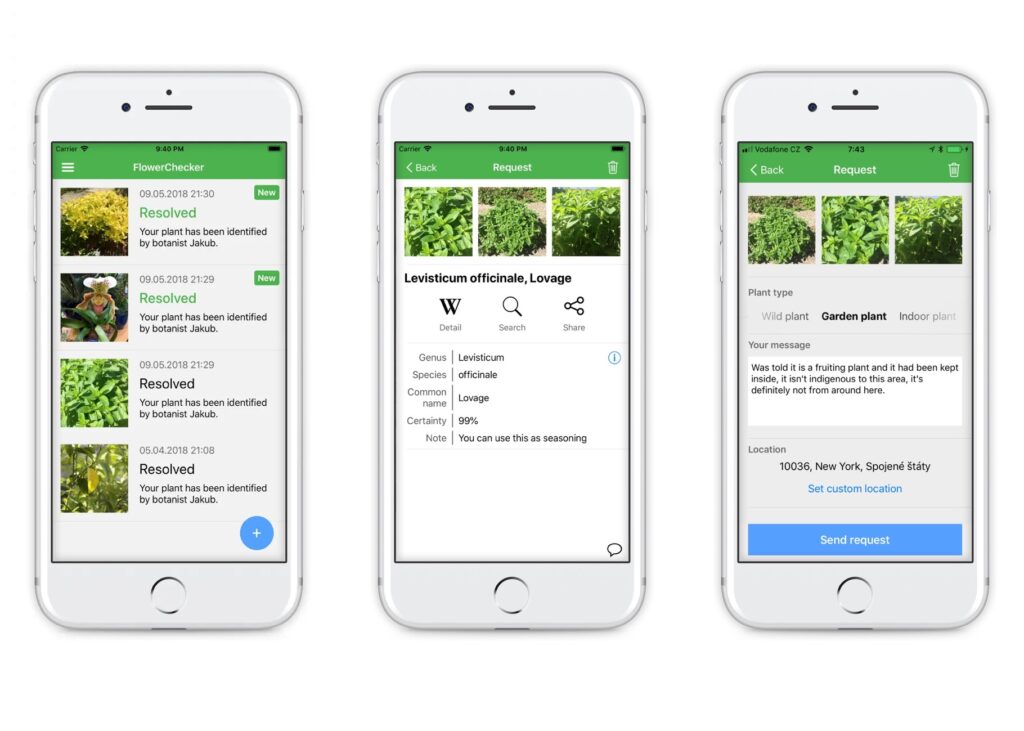
For anyone needing to identify flowering plants, FlowerChecker is a specialized free plant ID app with a database of over 650 flower species. It uses AI technology to analyze photos of flowers and provide instant identification results. FlowerChecker is designed specifically for gardeners and florists who work heavily with flower arrangements and bouquets.
After identifying a flower, you can save it to the “My Garden” feature to reference care tips later. Helpful filters allow you to search for flowers by color, petal shape, garden conditions, and more. Users praise the app for its image recognition accuracy and focus on flowers. For quick and easy identification of geraniums, lilies, daisies, and other popular flowering plants, FlowerChecker’s specialty focus provides value.
- Specialized in identifying over 650 flower species
- “My Garden” feature to save and reference flowers
- Filter search options by color, shape, etc.
- Accurate identification abilities for flowers
- Simple interface good for beginners
- Lower accuracy for less common flower varieties
- Smaller overall database limited to flowers
- Provides limited info beyond flower ID
Price: Free (In-app purchases start at $0.99)
8. Flora Incognita
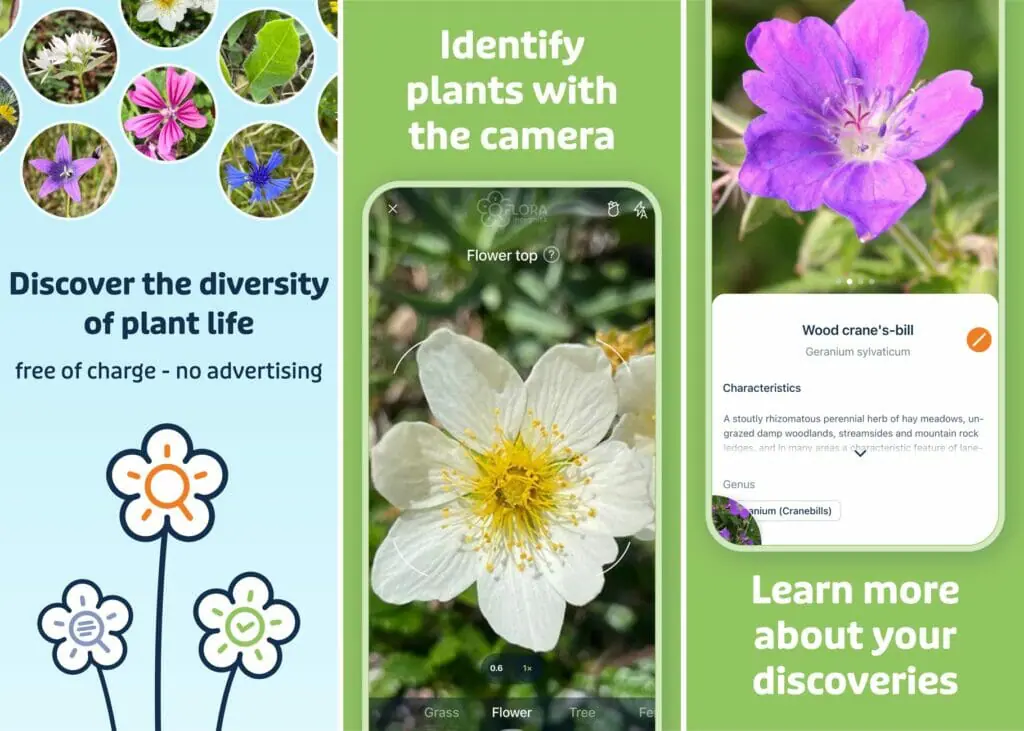
Developed by researchers for precise identification, Flora Incognita stands out for its accuracy when given detailed photographs. Powerful AI technology analyzes photographic plant details down to leaves, stems, petals, and veins to provide an exact species match. A unique feature is the app links to extensive outside resources like herbarium records and plant atlases for further details.
For expert botanists and scientists, Flora Incognita offers advanced capabilities. However, the technical interface is less accessible to casual users. But for those needing rigorous, research grade identification, Flora Incognita is a top choice.
- Uses AI for highly accurate identifications
- Links to detailed scientific plant databases
- Can identify down to exact cultivars
- Useful for researchers and experts
- Complex interface less user friendly
- Limited basic plant care information
- Smaller database lacking many common plants
Price: Free
9. Seek by iNaturalist
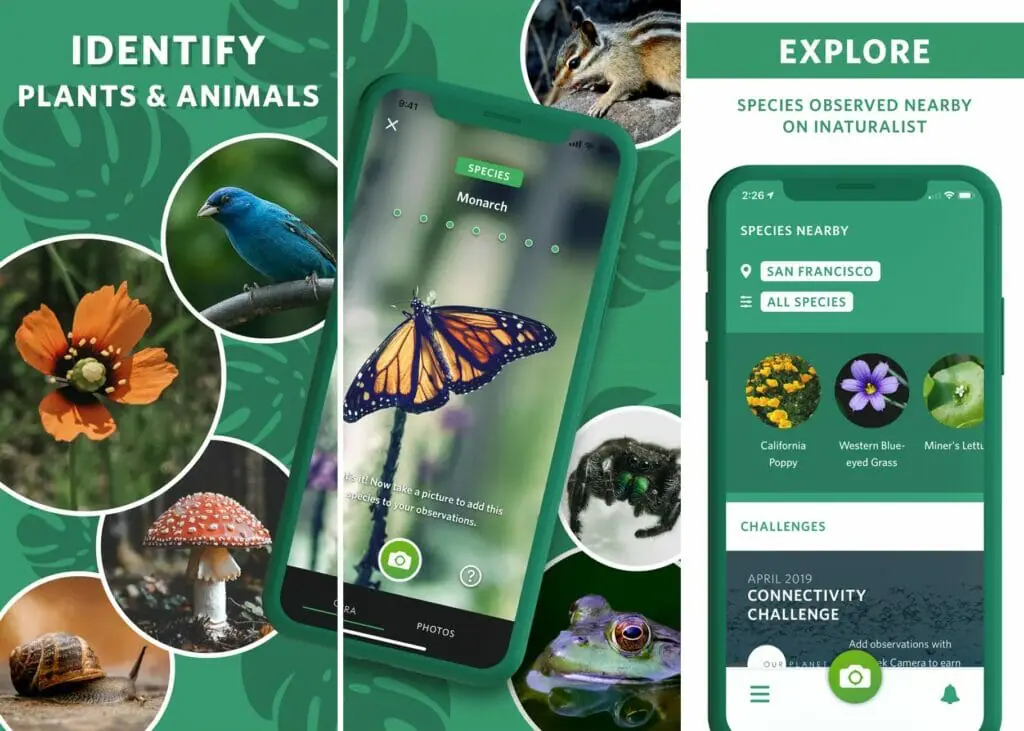
Created by scientists at iNaturalist, Seek is a nature identification app designed primarily for animals that also includes impressive plant recognition abilities. Seek has collaboration features that allow users to discuss identifications and share observational data to contribute to recording biodiversity. The plant database draws from iNaturalist’s extensive crowd-sourced images to recognize thousands of species.
Seek also provides links to additional information like Wikipedia to learn more about each identified plant. As it’s optimized for animals over plants, Seek has some limitations compared to specialized plant ID apps. But for nature lovers wanting a social app to identify all types of life, Seek delivers solid free plant identification through your iPhone camera.
- Created by scientists for accuracy
- Social features to discuss identifications
- Contribute observations to biodiversity maps
- Links to external sites for more plant info
- Designed primarily for animal IDs
- Smaller plant database than specialized apps
- Limited search filters and options
Price: Free
Conclusion
Having access to a free plant identifier for iPhone in your pocket makes identifying unknown plants quick and easy, whether you’re a gardener, student, or nature lover. Apps like PictureThis and PlantSnap offer incredibly powerful and accurate plant identifying abilities thanks to advanced AI technology.
For beginners, Leafsnap and Plant Identify represent user-friendly free plant ID apps to start learning plant identification. Specialized free plant apps for iPhones like SmartPlant cater to specific needs like garden planting. Ultimately, the right plant identifier for iPhone depends on your level of experience and intended use.
For more information:

